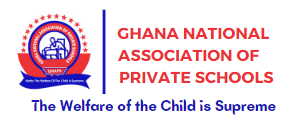Indiscipline In The Ghanaian Schools Has Become A Canker- the Impact On School Effectiveness, The Role Of Stakeholders
I wrote this article closely 8 years ago as a newly trained teacher, my few months experience in the classroom then and a student during the era of the 2,000 with an addition from the current happenings in the educational institutions.
Indiscipline in the Ghanaian schools has been a canker since the 2000’s and has lead to instabilities in various educational settings and institutions causing harm and loses to students, parents, management and the government of Ghana in fixing some of the material items destroyed as a result of indiscipline among students and sometimes leading to the death of students and teachers alike.
Some behaviors and actions exhibited by students that deviate from established rules, norms and expectations within the school environment encompasses a range of disruptive and disrespectful behaviors, including disobedience, disrespect towards authority and management, defiance of school policies, absenteeism, tardiness, bullying, vandalism, substance abuse, and violence. This awkward behaviors undermines the orderly functioning of the school community, disrupts the learning process, compromises academic achievement and poses risks to the safety and well-being of students and staff.
Addressing indiscipline in schools requires proactive measures, clear disciplinary policies, effective interventions and collaboration among stakeholders to foster a positive and conducive learning environment and Ghana Education Service should be applauded for the swift action in addressing indiscipline among students by ensuring that, a dean of discipline should be appointed with regards to standards set by them to curb indiscipline but has left the first cycle school at the mercies of family and friends and the most high.
Indiscipline in Ghanaian schools poses significant challenges that normally have a negative effect on the effectiveness ofthe sector and the well-being of students and teachers.
Indiscipline disrupts the learning environment making it difficult for teachers to effectively deliver lessons and for students to focus on their studies. Classroom disruptions, such as disrespectful behavior and disobedience, hinder the learning process and compromise academic achievement.
Students who lacks discipline often experience lower academic performance due to distractions, absenteeism and missed opportunities for learning. Persistent disciplinary problems lead to gaps in knowledge, reduced motivation and ultimately poor academic outcomes since such students normally don’t take their studies serious.
Indiscipline erodes the positive school culture and undermines the values of societal values which includes respect, responsibility and cooperation. It creates an atmosphere of tension, fear and insecurity among students and staff, leading to decreased morale and a lack of cohesion within the school community.
Disciplinary issues, such as bullying, violence, and substance abuse, jeopardize the safety and well-being of students and staff. Schools are made to be safe, conducive and enabling to make teaching and learning to be incidental but indiscipline has taken the beauty of these features of a safe school and has made the school environment unsafe where students feel vulnerable and unable to focus on their studies, leading to increased stress and anxiety among the school community.
Schools plagued by disciplinary issues often suffer from diminished reputation within the community. Negative perceptions of the school’s disciplinary climate can deter prospective students and parents, leading to decreased enrollment and funding opportunities as Achimota perceived about Thyrone Marguy and denied him admission because of his dread locks referred to us rasta. Intuitively, the school thought admitting him will have an adverse influence on the students and will break the long time credibility and the class of the school but he proved the entire Ghanaian community wrong by excelling when he was forcefully admitted through the court of law.
With all said and done, stakeholders has an indirect role to play in ddressing Disciplinary Issues.
The Government, Ministry of Education and the Ghana Education Service must formulate and implement policies and guidelines to address disciplinary issues in schools. They should provide support and resources to schools to effectively manage disciplinary challenges and promote positive behavior including the basic schools by resourcing the guidance and counselling unit to function effectively and make sure to empower teachers to redeem the lost credibility and integrity that students has taken for granted.
School administrators and teachers are responsible for maintaining a safe and conducive learning environment since they are the implementers of policies and as such they should implement proactive strategies, such as clear expectations, rules of engagement and regulations, consistent disciplinary policies and positive behavior interventions to address disciplinary issues to promote student well-being.
As tables cannot stand on two or three legs but need an additional leg for it to stand on it’s own, Parents and guardians should support the schools’ efforts to address disciplinary issues. They should instill values of respect, responsibility, tolerance and accountability in their wards and actively engage in school activities, such as parent-teacher meetings and disciplinary interventions.
The community and civil society organizations, NGOs, corporate bodies should collaborate with schools to address disciplinary issues through advocacy, awareness campaigns and the provision of support services. They can offer mentoring programs, attitudinal change seminars as Educate Africa Institute (EAI) is doing, organize character trait seminar as Kofi A. Tawiah Foundation has taken upon themselves to equip learners with character traits such as honesty, respect, Integrity, Empathy, Resilience, Humility, Courage, Generosity, Responsibility, Perseverance, Compassion, love among others.
Furthermore, the students themselves have a role to play in maintaining a positive school climate and promoting respectful behavior. They should adhere to school rules and regulations, codes of conduct, demonstrate empathy and compassion towards their peers and teachers and actively participate in initiatives to address disciplinary issues.
By working collaboratively, stakeholders can effectively address disciplinary issues in Ghanaian schools, creating safe, supportive, and conducive learning environments where students can thrive academically and socially.
Matey Wisdom
Educate Africa Institute (EAI)
Deputy Programs Director
Source: Elvisanokyenews.com
 ElvisAnokyeNews.com Latest News, Politics, Health, Education & More
ElvisAnokyeNews.com Latest News, Politics, Health, Education & More




